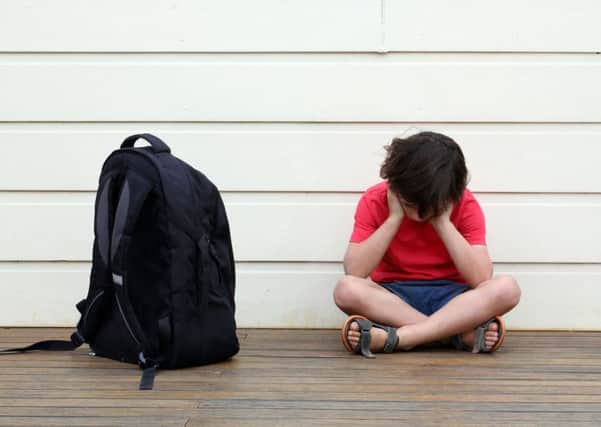Jack Williams: Schools mustn't sit on fence over bullying


Every child, every parent and every teacher will understand the word “bullying” in a different way. For some it is a one-off cruel comment, for others it is systematic humiliation or exclusion.
Although sometimes people may seem to use the term bullying too easily, I have always believed that if a young person is feeling pressured – either by the one-off comment or more serious behaviour from others – it is the role of adults, teachers, family and friends to understand and help to alleviate the problem.
Advertisement
Hide AdAdvertisement
Hide AdThere are many ways that bullying presents in young people, as every individual is different. It can affect children in the way they act, dress, eat or work; but there are no hard and fast ways to identify it. It is down to parents and teachers to spot differences in a child’s usual behaviour as well as understanding some of the more common symptoms.
Children will always say things without thinking and as they grow up, if not challenged, can move into deliberate bullying behaviour. It would be impossible for any school to say that bullying does not happen. The important issues for staff in schools are the culture of support, empowerment and sanctions that are put in place to deal with matters as they arise.
I count myself as very lucky to have worked in schools where pupils and students of all ages are comfortable talking to adults and will approach either staff or older students should they have a concern.
On one occasion a number of years ago, a Sixth Form student came to my door at break time to inform me that he was concerned about a new pupil who did not seem to be fitting in, often sitting quietly on their own in the playground. I spoke to the younger pupil’s form tutor who immediately investigated.
Advertisement
Hide AdAdvertisement
Hide AdOne other member of the form said: “We thought she wanted to be on her own. We’ll deal with it.” Within two days I saw the pupil laughing with members of her form at lunchtime and completely at ease with the school.
Bullying changes through time. As a school pupil in the 1980s, a mobile was a twirly thing above a baby’s cot and Instagram, Twitter and Snapchat were words that would not exist for decades. If something happened during school time then that is where it would stop, everybody would go home at the end of the day and have the opportunity to “sleep on it” before tackling any issues the next day.
That said, bullying was more easily misunderstood and poorly managed as research into the problem was rare and the help available limited (ChildLine was founded in 1986). The internet and social media are not going to disappear; in fact, the more likely scenario is for an expansion in the communication tools available to children. This is not something to be feared but embraced as a fact of life and educational professionals need to target the behaviour itself not the tools used. After all, we do not blame the paint tin for abusive graffiti. It is very easy to say: “Don’t put anything online that you wouldn’t be prepared to say in public to someone’s face”, but much more difficult to help a child understand it.
In summary, I actually believe that we understand bullying more and that policies and strategies are better than ever, but we will never eradicate bullying as children are developing human beings who will push behaviour boundaries. My first mentor in education had been trained in a Yorkshire agricultural college and his first words to me were: “Children are like pigs – build them a fence and they’ll try to find the holes in it. Move the fence and they’ll keep trying so make sure your fence stays where you put it!”
Advertisement
Hide AdAdvertisement
Hide AdWhat we need to ensure is that we never stop trying to put in place a culture that stops bullying before it starts, discovers it at the first signs and educates and supports both bully and victim.
Jack Williams is headteacher off Hipperholme Grammar School, Halifax.